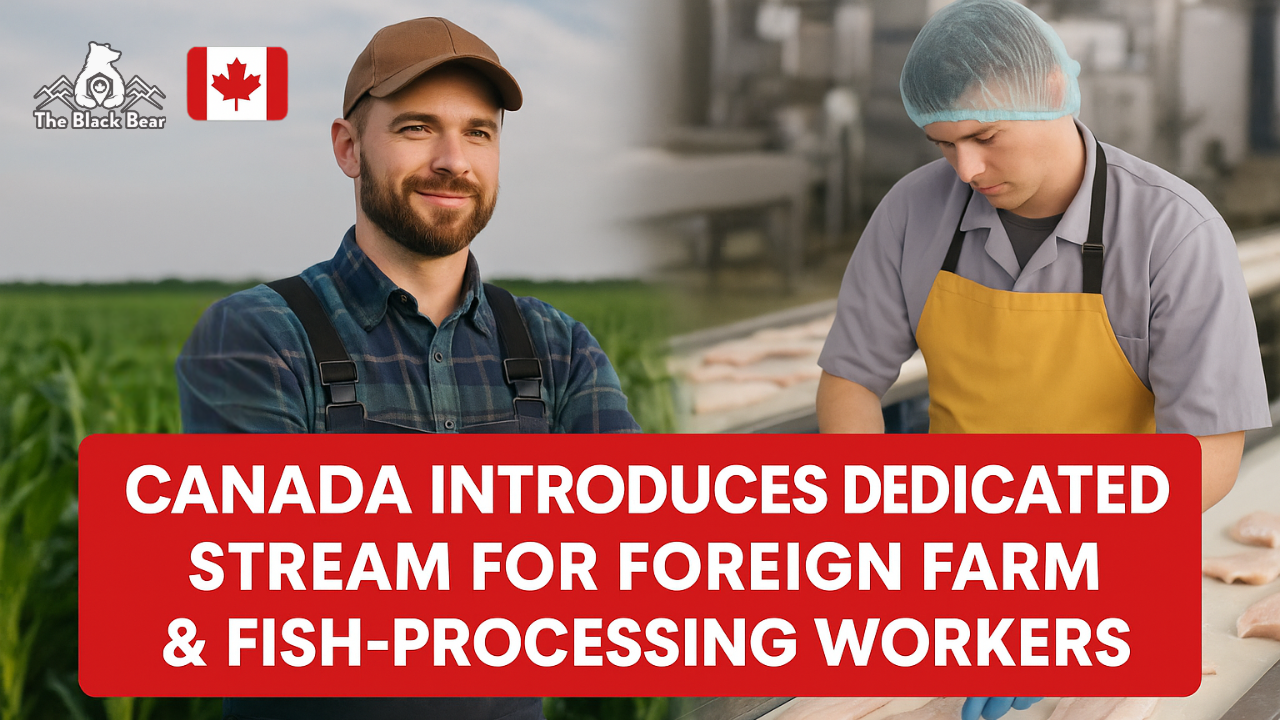Immigration, Refugees and Citizenship Canada (IRCC) is currently designing a targeted temporary foreign worker program to help alleviate severe labour shortages in the agriculture and

Immigration, Refugees and Citizenship Canada (IRCC) is currently designing a targeted temporary foreign worker program to help alleviate severe labour shortages in the agriculture and fish-processing sectors. This initiative is a core component of IRCC’s recently released 2025–2026 Departmental Plan.
Why This New Stream?
- Focus on essential sectors: Agriculture and fish processing are essential industries that IRCC has prioritized in its new plan.
- Replacing the Agri-Food Pilot: With the Agri-Food Pilot capped in February 2025 and now closed, Canada needs a permanent, robust mechanism to address continuing labour gaps.
What’s in the Works
- Sector-specific work permits
These permits will be specially tailored for agriculture and fish-processing roles, making it easier for employers to hire and retain foreign workers. - Expanded partner-country agreements
The program aims to build on successful bilateral partnerships—similar to the Seasonal Agricultural Worker Program (SAWP)—to simplify hiring from key countries. - Improved worker safeguards
Plans include guaranteeing market-level wages, safe housing that meets inspection standards, and access to support services and consular assistance. - Priority processing
Applications under this stream will be fast-tracked to ensure timely access to needed labour.
Timeline & Development
- 2025–2026: IRCC, alongside Employment and Social Development Canada (ESDC), will engage in detailed policy drafting and extensive public consultations.
- Later this year: The Economic Mobility Pathways Pilot will transition into a permanent pathway—and the new temporary worker stream is expected to follow within the fiscal year.
Impact & Strategic Goals
- Addressing persistent gaps: Chronic labour shortages in agri-food and fish processing sectors have posed growing challenges. This new stream is a direct response.
- Economic resilience: By streamlining hiring and improving worker conditions, Canada enhances food security and helps stabilize rural economies.
- Broader immigration strategy: The initiative aligns with IRCC’s goal to streamline temporary foreign labour in essential sectors and reinforce economic priorities.
Summary Table
| Aspect | Details |
|---|---|
| Purpose | Ease labour shortages in agriculture & fish processing |
| Permit Type | Sector-specific, flexible within the industry |
| Worker Benefits | Fair wages, inspected housing, support services |
| Administrative Support | Priority application processing, expanded bilateral agreements |
| Development Timeline | Consultation & policy design in 2025–2026; launch expected within the fiscal year |
| Strategic Importance | Builds on Agri-Food Pilot, supports IRCC economic and temporary worker management objectives |
What’s Next?
- Employers and workers should monitor IRCC and ESDC announcements throughout 2025–2026 for official program details.
- Public consultations are expected to inform final rules—stakeholders are encouraged to participate.
- While permanent residence pathways for this stream haven’t been confirmed, the success of similar pilots suggests they may emerge in time.
This initiative marks a significant move by Canada toward a more sector-specific, sustainable, and supportive approach to temporary foreign labour. It offers improved pathways and protections for workers, while ensuring employers in vital industries can meet their staffing needs efficiently.

